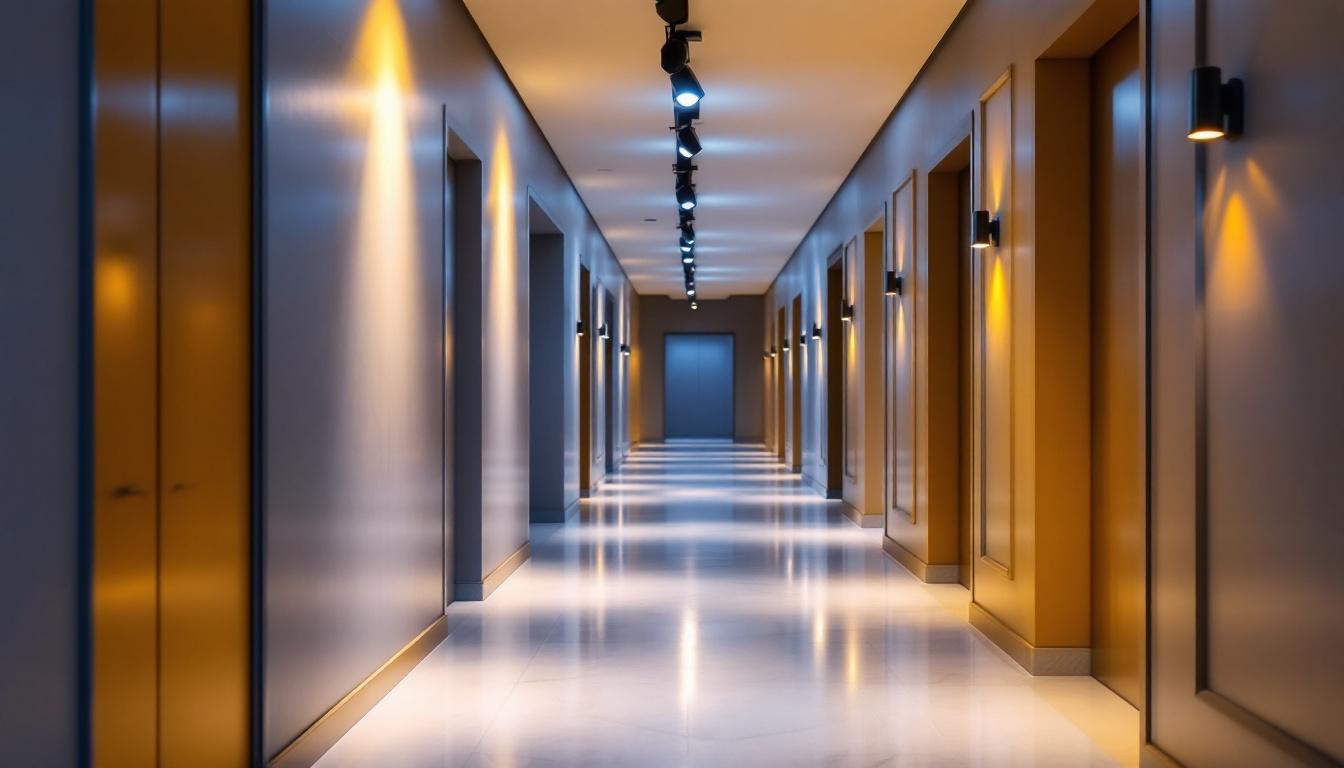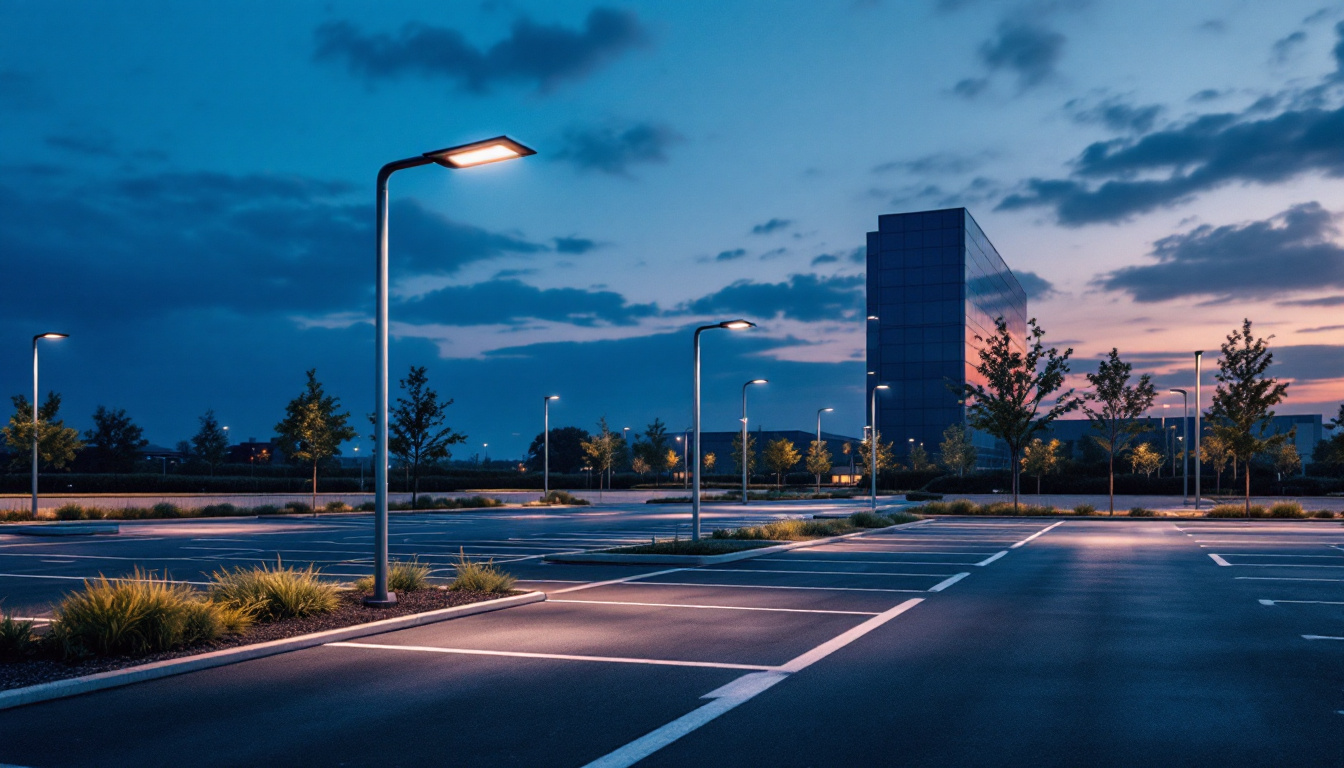
In the ever-evolving world of interior design, lighting plays a pivotal role in enhancing aesthetics and functionality. For lighting contractors, understanding the trends and technologies in modern ceiling lights is crucial for delivering projects that not only meet current demands but also anticipate future needs. This article explores strategies to future-proof lighting projects, ensuring they remain relevant and efficient for years to come.
Future-proofing lighting projects is more than just a buzzword; it’s a necessity in a rapidly changing environment. With advancements in technology and shifts in consumer preferences, lighting contractors must consider how their choices today will impact the usability and appeal of spaces in the future.
By adopting a forward-thinking approach, contractors can enhance client satisfaction, reduce the need for frequent upgrades, and ultimately save on costs. This section delves into the core reasons why future-proofing is essential in the lighting industry.
The pace of technological change is staggering. Innovations such as smart lighting systems, energy-efficient LED options, and integrated controls are becoming standard in modern designs. By incorporating these technologies into projects, contractors can ensure that their installations remain compatible with future upgrades.
For instance, selecting fixtures that support smart home systems allows clients to adapt their lighting as new technologies emerge. This adaptability not only enhances the functionality of the space but also aligns with the growing trend of home automation. Furthermore, the integration of IoT (Internet of Things) capabilities means that lighting can be controlled remotely, monitored for energy consumption, and even programmed to adjust based on occupancy or time of day. This level of customization not only appeals to tech-savvy consumers but also promotes energy efficiency, which is becoming increasingly important in both residential and commercial settings.
Consumer preferences are shifting towards more personalized and sustainable options. Today’s clients are looking for lighting solutions that reflect their individual styles while also being environmentally conscious. By offering a range of modern ceiling lights that cater to these preferences, contractors can position themselves as leaders in the market.
Moreover, understanding the importance of design aesthetics can help contractors recommend fixtures that not only illuminate spaces but also serve as statement pieces. This dual functionality is increasingly sought after in residential and commercial projects alike. As sustainability becomes a priority, clients are also interested in the lifecycle of their lighting products. Highlighting options made from recycled materials or those that offer long-term energy savings can further enhance a contractor’s appeal. Additionally, educating clients about the benefits of energy-efficient lighting can empower them to make informed decisions that align with their values, ultimately fostering a deeper connection between the contractor and the client.
The selection of lighting fixtures is a critical aspect of any project. With a plethora of options available, it’s essential to choose fixtures that are not only stylish but also versatile and efficient. This section outlines key considerations for selecting modern ceiling lights that stand the test of time.
Modern ceiling lights come in various designs, from sleek and minimalistic to bold and artistic. Choosing versatile designs allows for easier integration into different styles of decor, whether it be contemporary, industrial, or traditional. Fixtures that can adapt to various environments are more likely to remain relevant as trends evolve.
Additionally, modular lighting systems offer flexibility, allowing for adjustments in layout and intensity. This adaptability can be a significant selling point for clients who may want to change their space without undergoing a complete renovation. The ability to customize lighting arrangements not only enhances the aesthetic appeal of a room but also improves functionality, catering to different activities such as reading, entertaining, or working.
As energy costs rise and environmental concerns become more pressing, energy efficiency is a top priority for many clients. Selecting LED fixtures not only reduces energy consumption but also lowers maintenance costs due to their longer lifespan. This makes them an attractive option for both residential and commercial projects.
Contractors should also consider fixtures made from sustainable materials. By promoting eco-friendly options, they can appeal to environmentally conscious clients and contribute to a more sustainable future. Furthermore, utilizing smart lighting technologies can enhance energy efficiency even further. These systems allow users to control lighting remotely, set schedules, and even adjust brightness based on natural light availability, ensuring that energy is used only when necessary. This integration of technology not only supports sustainability but also adds a layer of convenience that modern consumers increasingly demand.
Smart lighting technology has transformed the way spaces are illuminated. By integrating smart features into ceiling lights, contractors can enhance the functionality and appeal of their projects. This section examines the benefits of incorporating smart technology into lighting designs.
Smart lighting systems allow users to control their lights from anywhere, whether through a smartphone app or voice commands. This level of control not only adds convenience but also enables users to customize their lighting according to their needs and preferences.
For instance, programmable settings can adjust the brightness and color temperature based on the time of day or activity, creating a more dynamic and enjoyable environment. By offering these features, contractors can provide clients with a modern solution that enhances their daily lives. Furthermore, smart lighting can contribute to energy savings by allowing users to set schedules or utilize motion sensors that automatically turn lights off when a room is unoccupied, promoting both sustainability and cost-effectiveness.
Modern ceiling lights can seamlessly integrate with other smart home devices, such as thermostats, security systems, and entertainment systems. This interconnectedness creates a cohesive smart home experience that appeals to tech-savvy clients.
Contractors should consider recommending lighting systems that are compatible with popular smart home platforms. This not only future-proofs the installation but also positions the contractor as knowledgeable and forward-thinking in the industry. Additionally, the ability to synchronize lighting with music or movies can elevate the ambiance of a space, making it perfect for entertaining guests or enjoying a cozy night in. As smart technology continues to evolve, the potential for innovative lighting solutions will only expand, offering even more opportunities for contractors to impress their clients.
The layout and design of lighting are crucial for achieving the desired ambiance and functionality in a space. Proper planning ensures that lighting is effective and aesthetically pleasing. This section discusses key principles for designing effective lighting layouts.
Layered lighting involves combining different types of lighting—ambient, task, and accent—to create a well-balanced and dynamic environment. For ceiling lights, this may mean using a combination of recessed lights, pendant fixtures, and chandeliers to achieve the desired effect.
By educating clients about the benefits of layered lighting, contractors can help them understand how to enhance their spaces. This approach not only improves functionality but also allows for greater creativity in design.
When selecting ceiling lights, it’s essential to consider the scale of the space. Overly large fixtures can overwhelm a small room, while tiny lights may get lost in a grand space. Understanding the proportions of a room helps in making informed decisions about fixture size and placement.
Additionally, the height of the ceiling plays a significant role in determining the type of fixtures to use. For high ceilings, pendant lights or chandeliers can create a dramatic effect, while flush mounts may be more suitable for lower ceilings. This attention to detail ensures that the lighting design is both functional and visually appealing.
The lighting industry is constantly evolving, with new trends and technologies emerging regularly. For lighting contractors, staying updated with these changes is vital for maintaining a competitive edge. This section explores how contractors can keep abreast of industry developments.
Participating in workshops, webinars, and industry conferences can provide valuable insights into the latest trends and technologies. Many organizations offer certification programs that enhance knowledge and skills, ensuring that contractors remain at the forefront of the industry.
Additionally, subscribing to industry publications and following influential blogs can help contractors stay informed about new products and innovations. This commitment to continuous education not only benefits the contractor but also enhances the service provided to clients.
Building relationships with other professionals in the lighting industry can lead to valuable collaborations and insights. Networking allows contractors to share experiences, discuss challenges, and learn from one another. This exchange of ideas can inspire innovative solutions and approaches to lighting projects.
Joining local or national lighting associations can also provide access to resources, training, and networking opportunities that can help contractors grow their businesses and stay relevant in a competitive market.
Future-proofing lighting projects is essential for lighting contractors who want to deliver lasting value to their clients. By understanding the importance of technological advancements, consumer preferences, and innovative design, contractors can make informed decisions that enhance their projects.
Choosing versatile, energy-efficient fixtures, incorporating smart technology, and staying updated with industry trends are all critical components of a successful lighting strategy. By adopting these practices, contractors can ensure that their lighting projects remain relevant, functional, and aesthetically pleasing for years to come.
In a world where change is the only constant, embracing a future-proof mindset will not only benefit contractors but also create spaces that inspire and delight clients. Investing in modern ceiling lights today means investing in a brighter, more sustainable tomorrow.
Ready to elevate your lighting projects with the latest in modern ceiling lights? At LumenWholesale, we provide you with the tools to not only meet today’s standards but to excel in the future of lighting design. Our extensive selection of spec-grade lighting products ensures you have access to the highest quality at wholesale prices. Say goodbye to local distributor markups and hello to premium lighting with the convenience of free shipping. Don’t let hidden fees dim your project’s potential. Choose LumenWholesale for a brighter, more sustainable future in lighting. Wholesale Lighting at the Best Value is just a click away.

Discover how track wall lights can transform your space by enhancing safety and functionality in lighting installations.

Discover the crucial role hanging ceiling light fixtures play in the success of lighting projects.

Discover how parking lot solar lights are revolutionizing the lighting industry with sustainable, cost-effective solutions.

Discover essential insights for lighting contractors on choosing and installing LED outside shop lights.